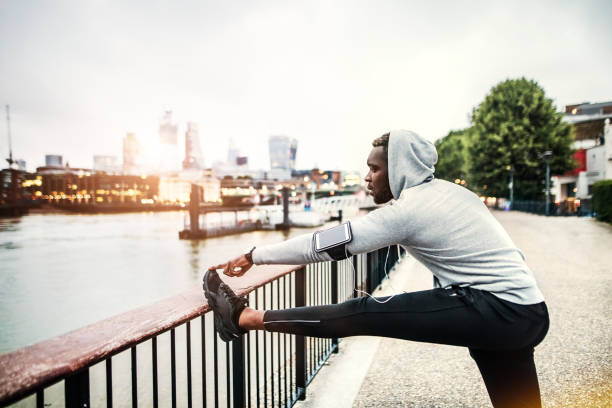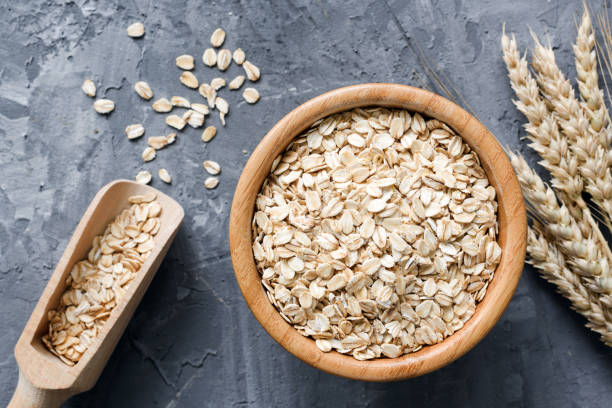By Evans Matthews
The rainy season in Nigeria, which typically stretches from April to October, is marked by cooler temperatures, heavy downpours, and increased humidity. While this period brings relief from the intense heat of the dry season, it also presents unique challenges for those striving to maintain a consistent fitness routine. Roads become muddy, outdoor workouts become difficult, and motivation can wane as skies stay grey. However, staying fit during this season is not only possible but also highly beneficial for immunity, mental health, and overall well-being.
In this article, we explore practical strategies to help Nigerians stay active and healthy during the rainy season, regardless of weather disruptions.
- Understand the Importance of Rainy Season Fitness
The rainy season can contribute to a more sedentary lifestyle, which in turn increases the risk of weight gain, muscle stiffness, and mental fatigue. According to the World Health Organization (WHO), regular physical activity helps prevent non-communicable diseases such as cardiovascular disease, diabetes, and depression (WHO, 2022). This is especially important in Nigeria, where sedentary lifestyle-related diseases are on the rise.
Maintaining a fitness routine during the rainy season helps:
- Boost immunity: Regular exercise enhances the body’s immune response, which is crucial in a season where colds, flu, and respiratory infections are more common.
- Improve mental health: Rainy, gloomy days can contribute to mood disorders. Exercise releases endorphins that improve mood and reduce stress.
- Maintain metabolism: The body’s metabolism can slow down during periods of inactivity. Regular exercise keeps the metabolic rate optimal.
- Home Workouts: Turning Your Living Space Into a Gym
Given that outdoor workouts can be impractical or unsafe during heavy rains, indoor workouts are the go-to alternative.
Bodyweight Exercises
You don’t need fancy equipment; exercises such as the followings would do:
- Push-ups
- Squats
- Lunges
- Sit-ups
- Planks
- Burpees
These can be done in a small living space. According to research published in the Journal of Physical Fitness and Performance (2020), bodyweight workouts can provide the same cardiovascular and strength benefits as equipment-based workouts when done consistently.
Skipping (Jump Rope)
Skipping is an excellent cardiovascular workout and requires minimal space and equipment. Just 10 minutes of skipping can burn as many calories as 30 minutes of jogging.
Fitness Apps and YouTube Channels
There are many free mobile apps and YouTube channels tailored for at-home workouts. Nigerian fitness influencers like Kemen Fitness, Uzikwendu’s UziBurnout, and Kate Henshaw’s fitness routines provide culturally relatable and effective workouts that don’t require gym equipment.
- Make Use of Community Indoor Spaces
In many Nigerian urban areas, some estates and communities have multipurpose halls, churches, or even classrooms that are vacant during weekdays. These can be turned into group workout spaces with permission.
Group activities like:
- Aerobics
- Zumba
- Dance fitness (Afrobeats workouts)
- Indoor boot camps
These help foster accountability and community motivation, which is especially useful during seasons when individual motivation may waver.
- Explore Fitness-Friendly Indoor Hobbies
The rainy season can be a good time to try out new activities that keep the body engaged.
Dancing
Nigerians love music, and dancing is one of the most enjoyable ways to stay active indoors. Whether it’s Afrobeats, Highlife, or Fuji, you can turn your living room into a dance floor. Dancing for 30 minutes can burn between 200–400 calories, depending on the intensity.
Yoga and Pilates
These are excellent for building strength, flexibility, and mental clarity. You can follow Nigerian yoga instructors like Ajoke Ogunlaja or Lola Salami, who incorporate African rhythms and mindful living into their sessions.
- Adjust Your Schedule Around the Weather
In Nigeria, most rains fall in the early morning or late evening. Monitor local weather forecasts (via NIMET or weather apps) and plan workouts during dry windows—usually mid-morning or early afternoon.
For those who prefer outdoor runs, brisk walks, or bike rides, be flexible and ready to move your session when there’s a clear sky.
- Dress for the Season
Humidity and rainfall increase the risk of catching colds or fungal infections, especially if you remain in damp clothing for long. Proper gear is essential:
- Moisture-wicking clothes: These help pull sweat from the body and dry quickly.
- Waterproof shoes or sneakers: Prevent water logging and potential foot infections.
- Raincoats or ponchos: For quick dashes outdoors without soaking.
- A clean towel and change of clothes: Always have these nearby to dry off immediately after a workout.
- Eat for Energy and Immunity
Fitness is incomplete without nutrition. The rainy season brings increased availability of fresh, leafy vegetables in Nigeria, such as ugu, scent leaf, waterleaf, and afang. These are packed with:
- Vitamins A and C
- Iron
- Antioxidants
These nutrients help boost immunity and reduce inflammation.
Also, incorporate:
- Protein sources: Eggs, beans, fish, chicken, and lean meats to help with muscle repair.
- Complex carbs: Sweet potatoes, unripe plantains, and brown rice for sustained energy.
- Hydration: Even when it’s cool, you still need 2–3 litres of water daily. Herbal teas like ginger or lemon tea are also great.
Avoid too much fried food or heavy, oily soups which can make you sluggish.
- Stay Motivated
Rainy season blues are real. The cloudy, cold weather can reduce motivation. Here’s how to keep going:
- Set goals: Weekly or monthly goals keep you focused.
- Workout with a buddy: Accountability helps.
- Join online fitness communities: Platforms like FitNigeria or social media hashtags like #NaijaFitFam connect you with like-minded people.
- Track progress: Use a journal or app to log your activity
.
- Be Safety Conscious
If you must exercise outdoors, be mindful of:
- Flooded or slippery roads: Avoid areas with poor drainage or hidden potholes.
- Mosquitoes: Standing water breeds mosquitoes. Use insect repellents or long clothing if you must be outside at dawn or dusk.
- Electrical hazards: In urban Nigeria, rain and exposed wires can be deadly. Avoid areas prone to electrical leaks.
- Visit Gyms or Fitness Studios (If Available)
In cities like Lagos, Abuja, and Port Harcourt, commercial gyms may be closer than you think. Many offer affordable monthly subscriptions. If you can, use indoor gym equipment like treadmills, stationary bikes, rowing machines, or weight stacks during rainy days.
Some reputable gym chains include:
- Bodyline Fitness (Lagos)
- iFitness (multiple cities)
- Lotus Gym (Abuja)
- Fitness Central (Port Harcourt)
These provide safe, structured environments to train year-round.
Conclusion
Staying fit during the rainy season in Nigeria is about adaptability and consistency. By turning your home into a mini gym, making smart nutritional choices, dressing appropriately, and staying motivated through community and tech, you can remain in top shape regardless of the weather. Remember, your health is your wealth—rain or shine.
References
1. World Health Organization. (2022). Physical activity. Retrieved from https://www.who.int/news-room/fact-sheets/detail/physical-activity
2. Olanrewaju, T. A., & Nwachukwu, I. (2021). Trends in sedentary lifestyle and obesity in urban Nigeria. Nigerian Journal of Health Sciences, 18(2), 65-72.
3. NIMET (Nigerian Meteorological Agency). (2024). Rainfall and Weather Patterns in Nigeria. https://nimet.gov.ng
4. Nwankwo, C. U. (2020). Urban fitness behavior in Lagos: Navigating space, health, and rain. University of Lagos Journal of Social Science Research, 12(1), 45-59.





